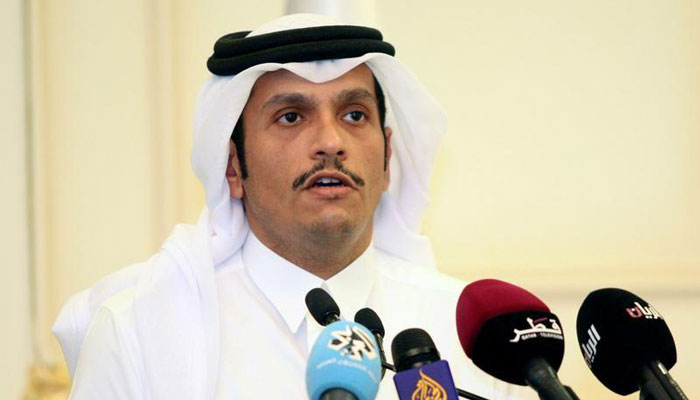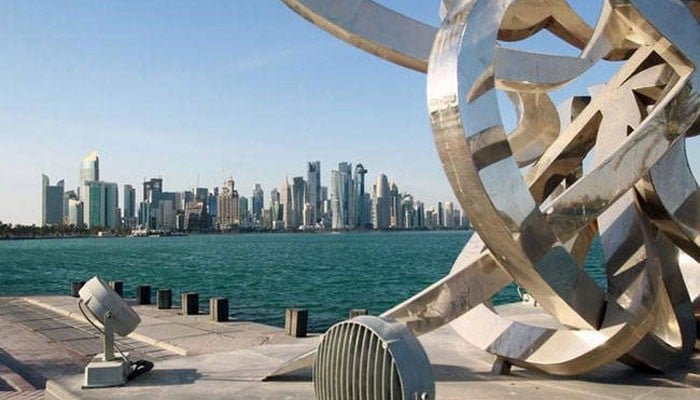Qatar seeks options at United Nations to overcome Gulf rift
July 28, 2017

Qatar's foreign minister on Thursday accused Arab states of violating international law in their boycott of the country and described the United Nations as the "right place" for Doha to seek options to overcome measures imposed against it.
Saudi Arabia, Egypt, the United Arab Emirates (UAE) and Bahrain severed relations with Qatar on June 5, accusing the major gas-exporting Gulf state of financing terrorism and cozying up to their arch-rival Iran. Doha denies the charges.
The four states have cut air and sea links with Qatar and sanctioned dozens of groups and individuals. The United Arab Emirates said on Saturday that Doha needed to change its policies before a dialogue could take place.
"The entire campaign represents a series of violations of international law," Qatar Foreign Minister Sheikh Mohammed bin Abdulrahman Al-Thani told reporters after meeting with UN Secretary-General Antonio Guterres.
"The state of Qatar is not going to spare any effort in order to overcome those violations and try to solve it through the right channels. The United Nations is the right platform to start from," he said without giving further details.
UAE Ambassador to the United Nations Lana Nusseibeh said the measures taken were "entirely legal, justified and proportionate" and accused Qatar of grave violations.
"We hope to see a diplomatic solution at the regional level through genuine engagement from their side," she told Reuters, adding that the United Nations has an important role to play in countering terrorism and that the countries would keep Guterres and the Security Council updated.
In June, Qatar asked the Montreal-based UN aviation agency to intervene after its Gulf neighbours closed their airspace to Qatar flights.
While Egypt last week accused Qatar of adopting a "pro-terrorist" policy that violated UN Security Council resolutions and described it as "shameful," that the 15-member body has not held Qatar accountable.
Any push to impose UN sanctions would likely be difficult as it needs either consensus approval behind closed doors by the Security Council or a vote on a resolution, which would need nine votes in favour and no vetoes.
Efforts by Kuwait to mediate in the dispute have so far yielded little progress.
The boycotting countries want Qatar to cut back ties with Iran, close a Turkish military base in Qatar and shut the Al Jazeera TV channel.
"We want to solve this issue by dialogue and we are not willing to escalate and they need to retreat from all their legal actions," said Al-Thani, who also met with US Secretary of State Rex Tillerson in Washington on Wednesday.













